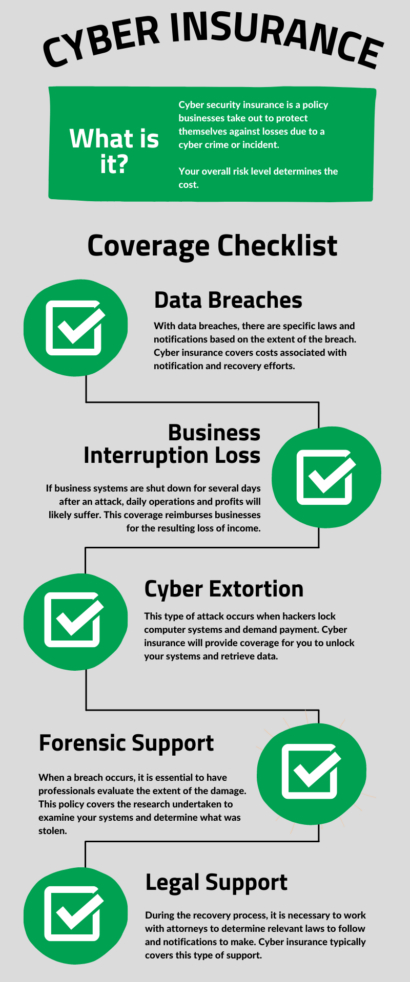Cybersecurity insurance: what is it and does your business need it?

Every business, large or small, faces cyber risks. Cyber security insurance is a powerful tool to mitigate the impact of data breaches, ransomware, and other cyber threats. In this guide, we’ll explore the importance of cyber security insurance, what it covers, and how to secure the right policy for your business.
1. What Is Cyber Security Insurance?
An overview of cyber security insurance as a protective policy designed to address digital threats. Discuss the need for policies that extend beyond traditional coverage, providing financial assistance and resources after cyber incidents.
2. Why Your Business Needs Cyber Security Insurance
Highlight risks all businesses face, with emphasis on why smaller companies and sensitive-data sectors (e.g., healthcare, finance) are increasingly targeted. Explain how insurance provides support when critical systems are compromised.
3. Key Coverage Areas of Cyber Security Insurance
- Data Breaches: Financial assistance for notification and credit monitoring of affected parties.
- Business Interruption: Compensates for lost income when systems are shut down.
- Cyber Extortion: Covers ransom payments in ransomware incidents.
- Forensic Support and Legal Aid: Supports technical investigation and legal compliance after breaches.
4. Industry Requirements and Recommendations
Discuss regulations in industries like healthcare and finance that make cyber insurance essential. Cover how requirements for data protection impact insurance coverage.
5. Cyber Security Insurance Costs and Factors Influencing Premiums
Outline how premiums vary based on company risk level, including security practices, the volume of sensitive data stored, and previous incidents.
6. How to Apply for Cyber Security Insurance
Review steps for obtaining insurance, including required risk assessments, information on security practices, and documentation.
7. Steps to Strengthen Security Posture
Provide actionable tips for businesses, such as implementing multi-factor authentication, regular backups, and employee training.
Conclusion:
Cyber security insurance is a critical safety net for businesses facing digital threats. With the right policy and security practices in place, companies can better protect their assets, data, and reputation in the face of rising cyber risks.

